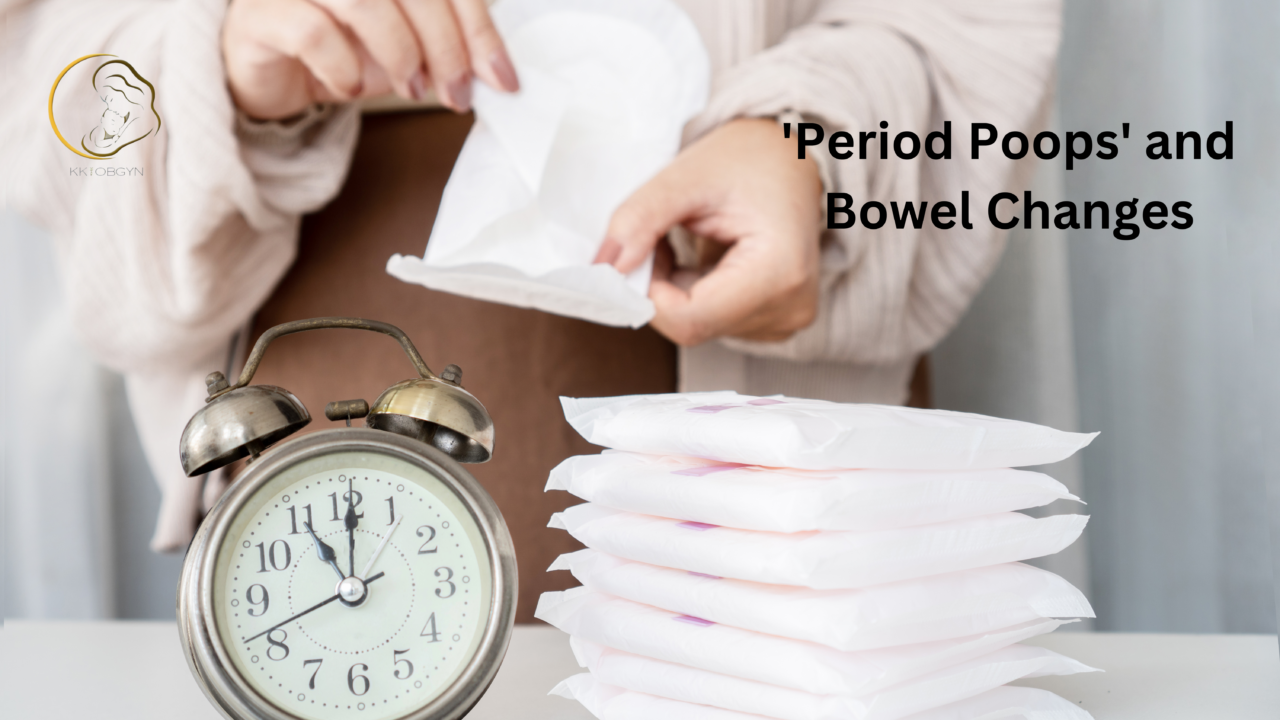Many women have experienced it—those uncomfortable, unpredictable bowel movements that seem to occur just before or during menstruation. Whether it’s diarrhea, constipation, or more frequent trips to the bathroom, these digestive changes are often referred to as “period poops.” While it may be an awkward topic, it’s an entirely normal part of the menstrual cycle for many women. Understanding the science behind these changes can help you manage the discomfort and reduce any anxiety around this common occurrence.
In this blog, we’ll dive into the biology behind period-related bowel changes, why they happen, and how to manage them effectively.
Why Do Bowel Movements Change During Your Period?
The key to understanding the digestive changes that happen during menstruation lies in the hormonal fluctuations that occur throughout the menstrual cycle. Two main hormones—progesterone and estrogen—play a significant role in regulating the digestive system. These hormones affect the motility of the intestines, which is the process by which food moves through the digestive tract.
During your menstrual cycle, the following hormonal changes occur:
- Estrogen: Estrogen levels rise during the first half of the cycle, promoting normal bowel function and aiding in digestion. However, as estrogen levels dip before menstruation, bowel motility can slow down.
- Progesterone: After ovulation, progesterone levels increase and can slow down the muscles in the digestive tract, leading to constipation. As progesterone levels fall during menstruation, it may cause the opposite effect—an increase in bowel movement frequency and diarrhea.
These hormonal fluctuations, along with the physical changes occurring in the uterus and surrounding areas, contribute to the gastrointestinal symptoms many women experience during their period.
Common Types of Period Poops
Let’s look at some of the common bowel changes women report during menstruation:
1. Diarrhea: Many women experience loose stools or diarrhea just before or during their period. This is often due to the drop in progesterone levels, which triggers an increase in bowel motility. The increased hormone prostaglandin also causes the uterus to contract, which can have a similar effect on the intestines, pushing the food through faster.
2. Constipation: On the flip side, some women experience constipation before or during their period. This is more common in the luteal phase (the second half of the cycle), when progesterone levels are high. Progesterone can cause the muscles of the intestines to relax, slowing down digestion and leading to difficulty passing stools.
3. Increased Frequency: Some women may feel the need to go to the bathroom more frequently during their period. This can be due to a combination of hormonal changes and the physical pressure from the uterus on the intestines.
4. Bloating and Gas: Bloating and excess gas are also common complaints related to menstruation. This is often due to hormonal fluctuations that affect the digestive system, combined with changes in diet, increased water retention, and other factors.
The Role of Prostaglandins
Prostaglandins are hormone-like substances that play a major role in menstruation. They are responsible for triggering uterine contractions to help shed the uterine lining. However, high levels of prostaglandins can also stimulate the digestive system, leading to increased bowel motility and, in some cases, diarrhea.
In fact, higher prostaglandin levels are often linked to more severe menstrual cramps and gastrointestinal symptoms like diarrhea and nausea. Prostaglandins affect the muscles of both the uterus and the intestines, which can lead to the uncomfortable bowel changes many women experience during their period.
Managing Period Poops and Bowel Changes
While period-related bowel changes are common, they can be managed with some simple lifestyle adjustments. Here are a few tips to help minimize digestive discomfort during menstruation:
1. Eat a Balanced Diet: Eating a diet rich in fiber, whole grains, fruits, and vegetables can help regulate bowel movements and prevent constipation. Avoiding fatty or highly processed foods may also help reduce digestive discomfort.
2. Stay Hydrated: Dehydration can worsen constipation and bloating. Drinking plenty of water during your period can help alleviate these issues and promote healthy digestion.
3. Exercise Regularly: Light exercise, like walking or yoga, can help stimulate digestion and keep the bowels moving regularly. Aim for at least 30 minutes of activity each day to help with digestion.
4. Try Herbal Remedies: Certain herbal teas, like peppermint or ginger tea, may help soothe the digestive system and reduce bloating. Chamomile tea is another option that can relax the muscles in the digestive tract.
5. Take Pain Relief for Cramps: If your period cramps are particularly painful, consider taking over-the-counter pain relievers, such as ibuprofen. These can help reduce inflammation and control the level of prostaglandins, easing both menstrual pain and gastrointestinal discomfort.
6. Consult a Healthcare Professional: If you experience severe or prolonged changes in bowel movements or gastrointestinal symptoms, it’s important to consult a healthcare provider. Conditions like irritable bowel syndrome (IBS) or endometriosis can also cause similar symptoms, and a healthcare professional can help diagnose and treat any underlying conditions.
When Should You Be Concerned?
While mild to moderate gastrointestinal symptoms during your period are generally nothing to worry about, there are times when it’s important to seek medical attention. If you experience:
- Severe diarrhea or constipation lasting more than a few days.
- Blood in your stools.
- Unexplained weight loss.
- Extreme abdominal pain.
These could be signs of a more serious condition, such as inflammatory bowel disease (IBD), and should be evaluated by a doctor.
Conclusion: Understanding Period Poops
Period poops are a natural and common part of the menstrual cycle for many women. Hormonal changes, including fluctuations in estrogen, progesterone, and prostaglandin levels, can affect the digestive system in various ways. Understanding the science behind these changes can help women feel more in control and less anxious about this uncomfortable but normal phenomenon.
With the right dietary and lifestyle adjustments, most women can manage their symptoms and feel better during their period. If you’re concerned about your digestive health during menstruation, don’t hesitate to reach out to your healthcare provider for advice and support.


